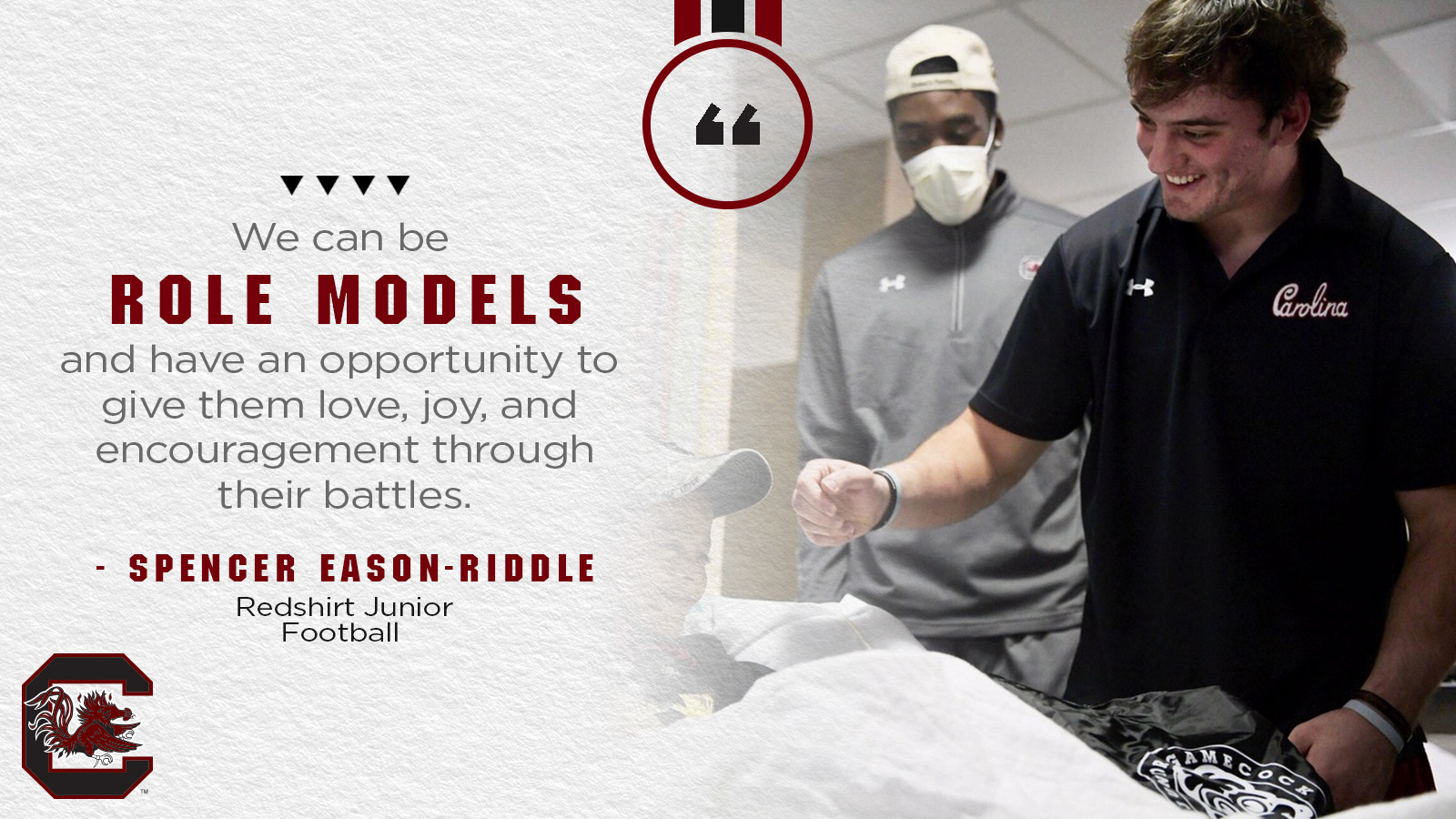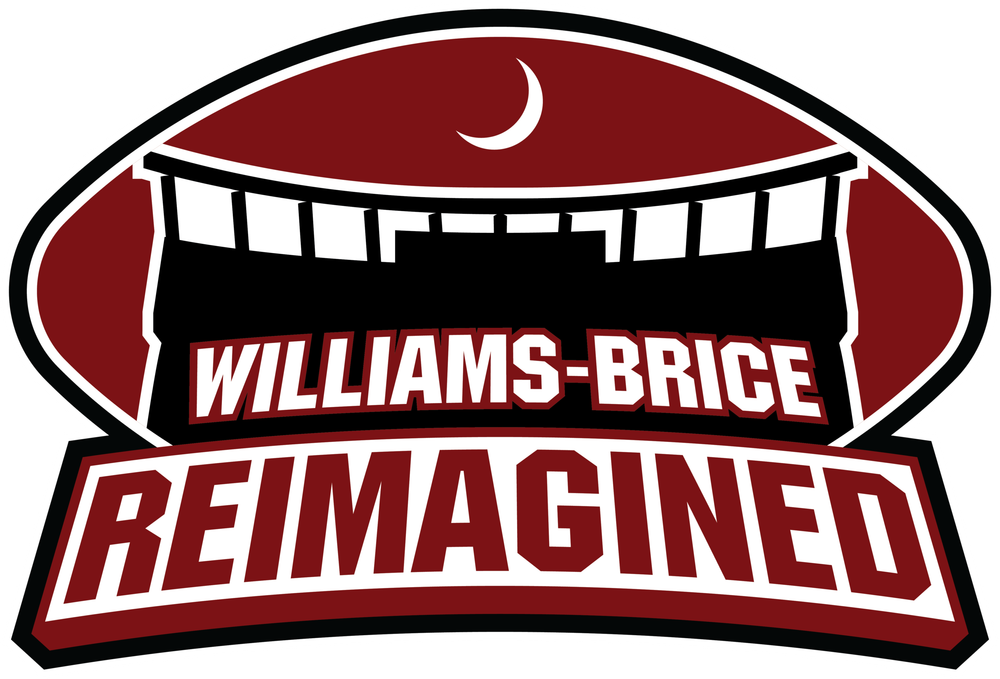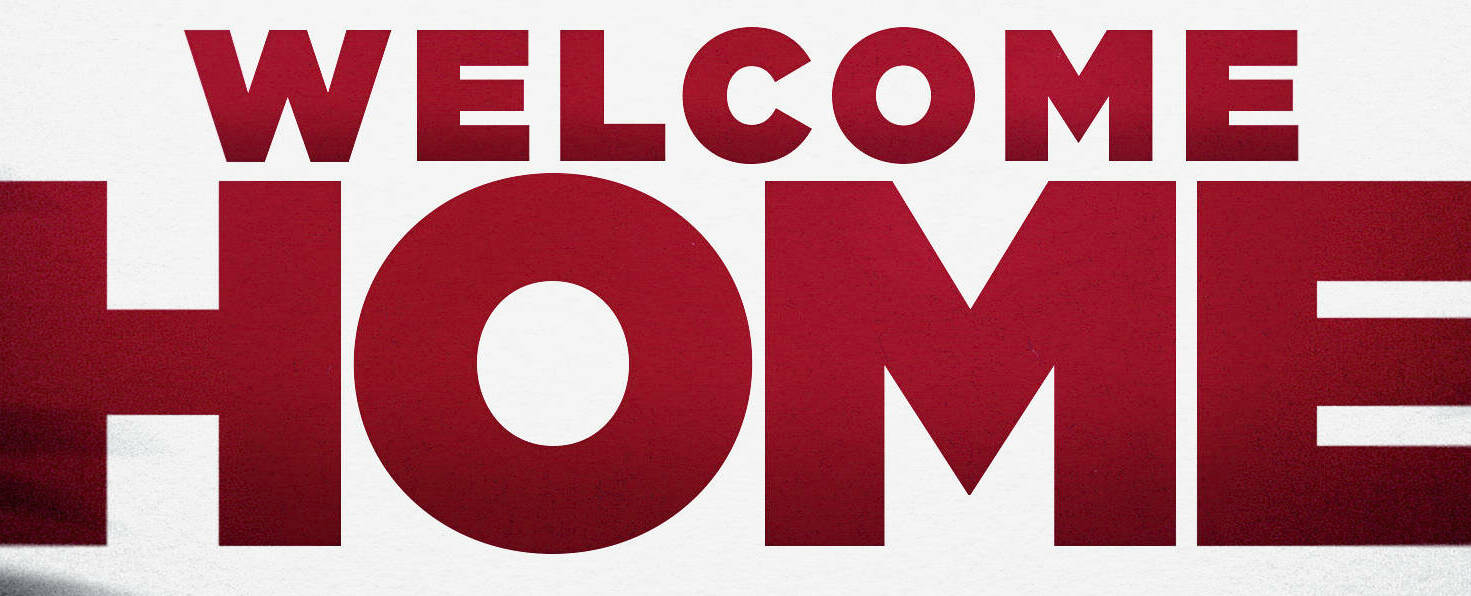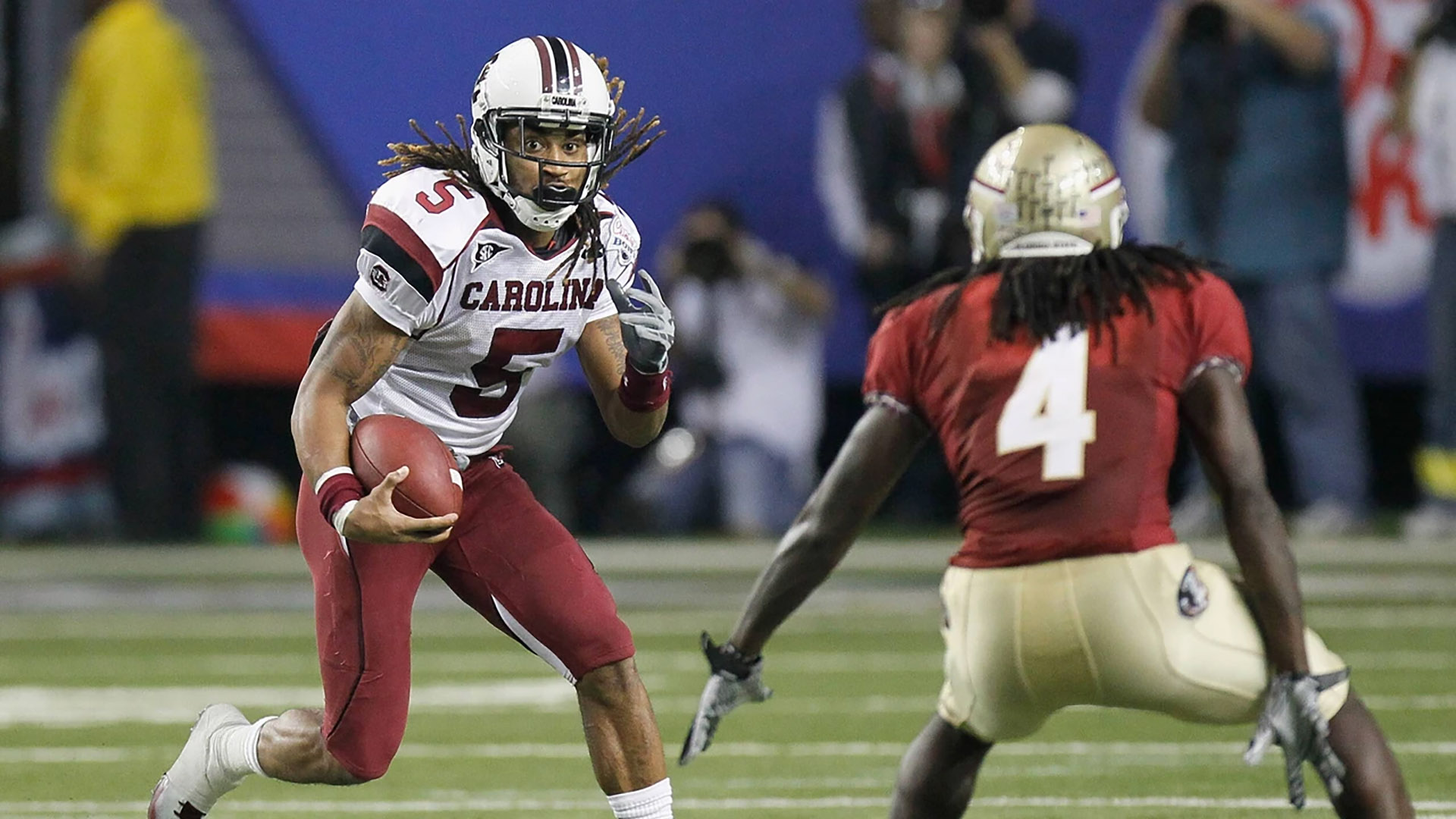
Gamecocks Develop Program to Connect with Children's Hospital Patients
A sandstorm may brighten the day of youngsters in a Columbia children’s hospital. South Carolina redshirt junior football student-athlete Spencer Eason-Riddle is spearheading a new program to provide regular involvement between patients and student-athletes.
“We’ve created the Children’s Hospital program called the Sandstorm Buddy Program. It’s basically a big-sister; big-brother-type of program,” Eason-Riddle said. “We pair our student-athletes to patients in the (Prisma Health) Children’s Hospital. Our main objective is to show support, help out the family a little bit, and just show that we care about these kids who are going through a tough time.”
The program’s name is a reference to the popular song which is played at Gamecock athletics events. Gamecock student-athletes are not strangers to team visits to the Children’s Hospital, but the Sandstorm Buddy Program is more of an individual commitment by the student-athletes.
“Our teams come in waves every few months there to come visit,” Eason-Riddle said. “That’s great, but this takes it a step further. We’re assigned a kid with other student-athletes, and we’re hoping to be able to build relationships and be able to help them a little along the way.”
“While our patients and families love the one-time visits from student-athletes, this program goes beyond the basics,” said Jordan Parker, Certified Child Life Specialist and Community Groups and Donations Coordinator for Prisma Health Children’s Hospital. “Our hope for this program is that it provides patients with a role model, mentor, and encourager for anything life throws at them. Whether the athlete comes to visit them and brighten their spirits at the hospital, steps in to help with school work, or attends milestone or life events outside of the hospital, we want them to have a therapeutic relationship with our families that supplement the support system they already have.”
Eason-Riddle brought the idea to the South Carolina Student-Athlete Advisory Committee, and it didn’t take long for a lot of Gamecocks to get on board.
“We had about 70 student-athletes sign up already,” Eason-Riddle said. “We just have to get them oriented with the hospital and get them matched up. Jackie Schaefer from women’s soccer has helped spread the word, and she has almost the whole soccer team signed up already. We’re trying to get as many student-athletes involved as possible. Everyday, I get a text or an email from someone else who wants to be a part of it, so it’s pretty special.
“Once we get our student-athletes through orientation at the hospital, then we’ll have the kids get signed up at the hospital, and then we’ll get them matched. Then it’s up to the student-athletes and the kids and their families to start connecting in-person, through texts, Facetime, or whatever as often as they want to, based on their schedules.”
“When you see these kids, you feel grateful for what you have. It puts things in perspective.”
– Jackie Schaefer, women’s soccer
“I want to work in pediatrics potentially when I graduate with my nursing degree,” said Schaefer, a junior who recently medically retired from soccer. “My team loves doing stuff with kids, and that’s why we had so many interested in becoming a buddy. I think almost everyone on the team signed up.”
Eason-Riddle and Schaefer regularly put their best foot forward in the community and have been named to the SEC Community Service Team. Eason-Riddle noted that once this idea came into his head, it was a no-brainer to follow through.
“I love helping out in the community and serving others in need,” Eason-Riddle said. “It’s just something in my heart to help others, help impact the community, and just make Columbia a better place. The kids in the hospital have been given an unfortunate situation, and that’s no way to go through childhood. For us as student-athletes, we can be role models and have an opportunity to give them love, joy, and encouragement through their battles in whatever they are going through. We can be impactful, and it can really help us, too.
“It’s big for our student-athletes to step out of their boundaries where they’re talking about things other than just sports, and it helps put things in perspective with all that we have. I’ve been to several children’s hospitals, and I visit with cancer patients regularly. There are a lot of people in this world and in this city, who are suffering.”
“It’s important for the buddy to have someone to talk to or look up to, who is close by and can come visit often or stay in touch through Facetime or texting,” Schaefer said. “We go through a lot of stuff as student-athletes, balancing school and sports. Sometimes you can feel overwhelmed, but when you see these kids, you feel grateful for what you have. It puts things in perspective, so it’s great to help other people who are having some bad days.”
The Gamecocks hope to make an impact with as many young patients as possible.
“We’re targeting kids with long term illnesses such as cystic fibrosis, blood disorders, cancer, and things like that,” Eason-Riddle said. “I just want to be able to reach as many kids as possible, whether they’re Gamecocks fans or not! I want to be able to touch as many kids as possible and make a big impact in that hospital.”
“Our main goal for the program is for the families to have an additional outlet to turn to for support and encouragement, as well as something positive to gain from their hospital experience,” Parker said. “In addition to what our families gain from this, we know that the student-athletes participating will benefit just as much.”
The process of making the program happen took a lot of legwork with administrators, but it’s been worth it.
“I’ve done several community service projects throughout the years, and I got in a cycle of doing the same thing,” Eason-Riddle said. “I wanted to do something different and develop something that all of our student-athletes can benefit from. I met with the child-life employees at the hospital, and I told them about the idea. They were all for it and have helped set it up on their side.”
“We really appreciate Spencer taking the initiative to reach out to us and develop this program,” Parker said. “We are excited to see where this program goes and how it benefits our patients and families.”












